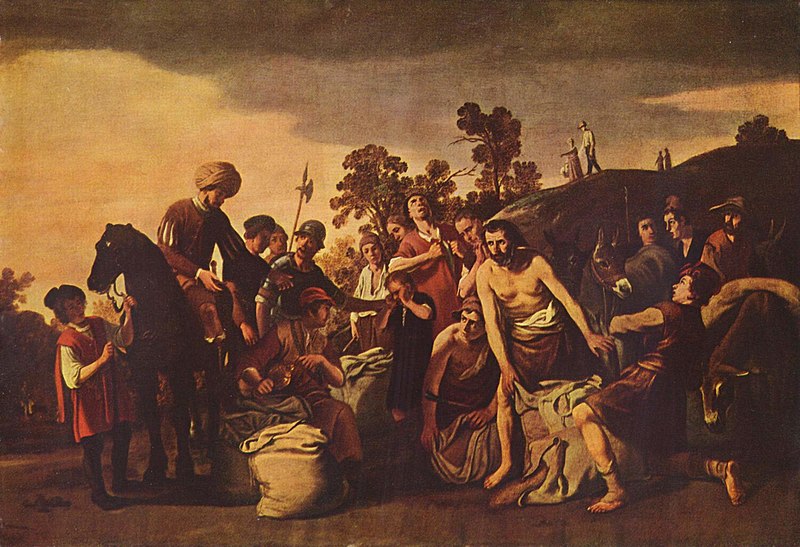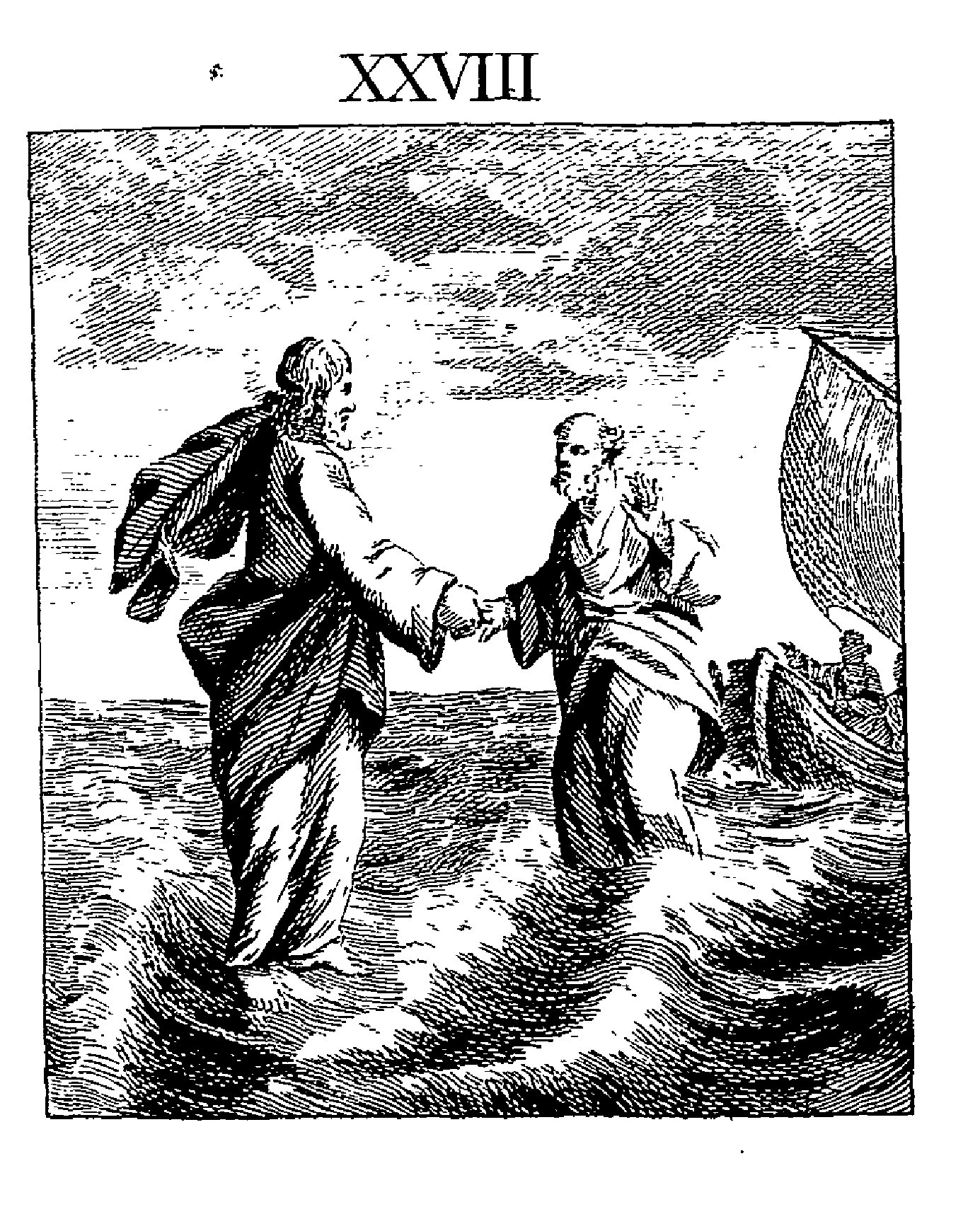Reference links:
Old Testament
 Joseph seems to want to mess with his brothers’ minds. Yesterday, he gave them a great feast. Today, he sends them back home without revealing his identity. Instead, he once again puts the brothers’ money back in their sacks. Additionally, he has his silver cup added to Benjamin’s sack. After the brothers have left, he sends his palace manager after them to accuse them of stealing the cup. They return to Joseph’s palace, believing Joseph will make Benjamin his slave. Joseph spends awhile berating them. Eventually, Judah makes an impassioned plea asking that he be made a slave instead of Benjamin. At this, Joseph finally gives in to his emotions and reveals himself to his brothers. They are amazed.
Joseph seems to want to mess with his brothers’ minds. Yesterday, he gave them a great feast. Today, he sends them back home without revealing his identity. Instead, he once again puts the brothers’ money back in their sacks. Additionally, he has his silver cup added to Benjamin’s sack. After the brothers have left, he sends his palace manager after them to accuse them of stealing the cup. They return to Joseph’s palace, believing Joseph will make Benjamin his slave. Joseph spends awhile berating them. Eventually, Judah makes an impassioned plea asking that he be made a slave instead of Benjamin. At this, Joseph finally gives in to his emotions and reveals himself to his brothers. They are amazed.
Now, at this point, everyone seems happy, and Joseph invites his whole family to come live with him in Egypt. I wonder if Joseph’s brothers were really as happy about the whole situation as they seemed to be. Joseph acted like a jerk toward them when they came to Egypt. They are starving and now know that the famine is predicted to last five more years. Furthermore, they see that Joseph is in a position of great prosperity and power. I think that no matter how big of a jerk he had been, they would have no choice but to pretend to be happy.
Also, today’s text has another odd redundancy. Joseph invites his family to come live in Egypt with him. A few passages later, Pharaoh also extends the invitation. The text makes it seem like Pharaoh extended this independently of Joseph’s. Not a glaring redundancy like some of the other ones we have seen, but it was enough to make me pause while reading.
New Testament
Jesus feeds 5000 men plus an unspecified number of women and children with five loaves of bread and two fish. Actually, contrary to common belief, he only feeds them the bread.
Then he told the people to sit down on the grass. Jesus took the five loaves and two fish, looked up toward heaven, and blessed them. Then, breaking the loaves into pieces, he gave the bread to the disciples, who distributed it to the people.
Maybe cooking the fish was too much effort? Maybe Jesus wanted the fish all for himself?
 Today must be miracle day in the readings because the night after distributing the bread, Jesus sends his disciples off in a boat while he prays. A storm comes up and he comes to the disciples walking, as we all know, on the water. He calls Peter to him and Peter comes until he gets scared and starts sinking.
Today must be miracle day in the readings because the night after distributing the bread, Jesus sends his disciples off in a boat while he prays. A storm comes up and he comes to the disciples walking, as we all know, on the water. He calls Peter to him and Peter comes until he gets scared and starts sinking.
I feel like I ought to have something skeptical to say about these miracles. However, I do not really mind the accounts of miracles performed by Jesus. I do not think the accounts are true, but I am willing to concede that if the Bible were a reliable source of information, I would be willing to give it the benefit of the doubt to claims that an individual performed miracles.
Instead, the skeptical side of me comes up when I read the passages that show that the Bible is not a reliable source of information. And such passages abound. The Bible makes incorrect claims about the world and our scientific knowledge (an olive tree could form leaves shortly after being deeply submerged, the earth was created before the sun). The Bible makes claims that are unlikely or that fail to be internally consistent (Noah was able to gather all the world’s creatures into an ark, the long life spans before the flood, inconsistent versions of the same event, two creation stories). These passages show that the Bible is not a good source of information, and that is why I reject the descriptions of Jesus’ miracles, not because of an a priori assumption that the miraculous occurrences are impossible.
Psalms and Proverbs
Today’s psalm is about how David destroyed his enemies. Good for him? David does provide us with a couple of good lines.
I ground them as fine as dust in the wind.
I swept them into the gutter like dirt.
It is not such a great sentiment, but it is a great description of complete destruction where the conqueror feels nothing but disdain for the conquered. Today’s reading from the psalms also has a couple of lines that I am guessing certain vindictive types of Christians find great joy in:
He is the God who pays back those who harm me;
he subdues the nations under me.
There are certainly those who give more weight to this vengeful, violent God than to the idea that God is Love. Of course, they have something going for them. So far the vengeful God seems to have more Biblical support than a God of love (but a tribal God of limited power seems to have the most Biblical support of all).